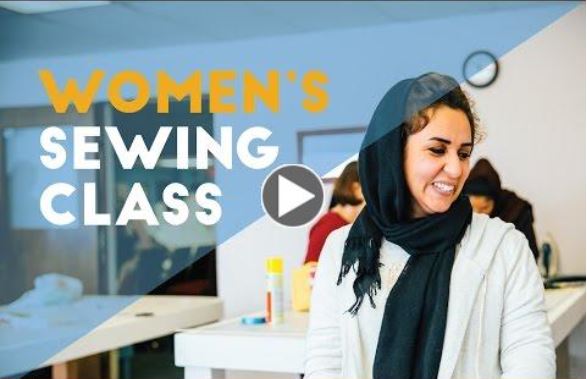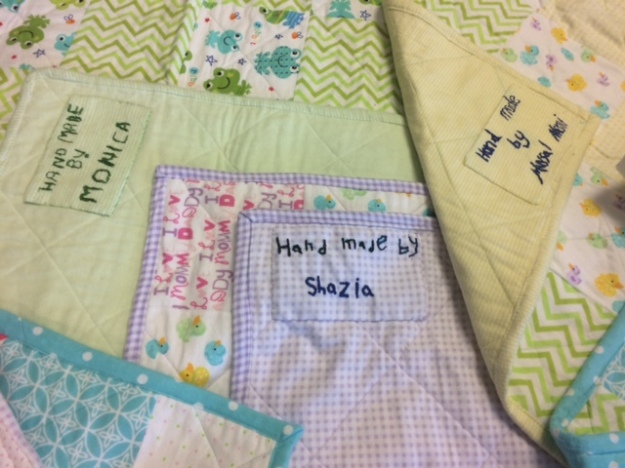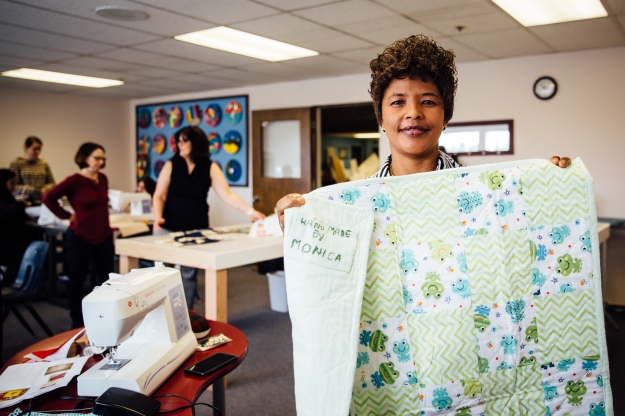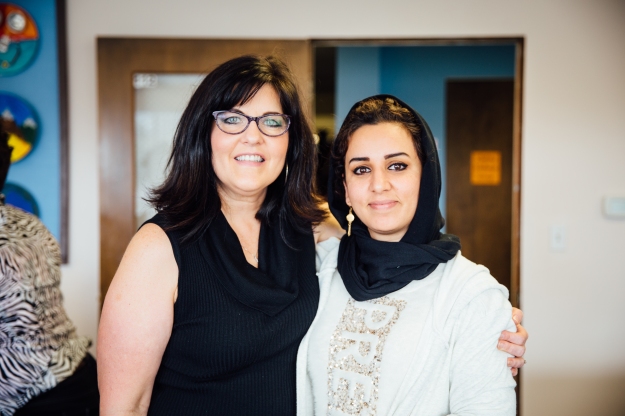
Our Women’s Sewing Class offers a safe space for women to learn English, foster community, and develop skills. Watch stories of mutual transformation from women in the class in this video.
One of the main challenges that refugee women face when they arrive in America is learning a new language. That task becomes exponentially harder if they are pre-literate and don’t know how to read and write in their native language. As a result, many of these women find it incredibly difficult to learn English and venture out into their new surroundings, making them one of our most vulnerable and isolated populations.
World Relief has partnered with Hillside Church and local volunteers to provide a dedicated sewing and childcare space and to create an 8-week basic sewing and vocational English language class. The sewing class not only provides these women with marketable skills, but it’s also a space for them to find community and practice relevant English skills.

The first class was a great success. Eight participants met with our volunteer teachers to create weekly projects ranging from oven mitts to small purses. The women were also given the opportunity to create two baby blankets for future refugee families in need. As a result of the class, two women were hired by local companies. Future classes have become so popular, there is now a waiting list to enroll.

“It was very good for me. It is more than sewing I learn. I make friends and learn many things, make beautiful things.” – Monica
“One of the main things that will stick with me is how women are women where ever they are from. Our life circumstances are vastly different but we have the same concerns – wanting to create a loving home for our families, wanting to provide for our kids, and the joy in being in a safe community, sharing with like-minded women.” -Debra Voelker, Sewing Class Volunteer

Jeanine and Mursal
How Can You Get Involved?
In light of the inaugural class’ success, World Relief plans to offer this class again beginning on May 2nd. Our goal is to further develop and improve the curriculum to best meet the needs of the participants.
Click Here to learn how to Volunteer in the class.
We want to upgrade to new sewing machines for the class. New machines will enhance the students’ learning experience and allow them to practice on a wider variety of materials.
Costs for the next class will include:
- $650 per student for materials and transportation
- $500 per sewing machine
- $1,250 for childcare for all the moms in the class
Donate to empower refugees.



















